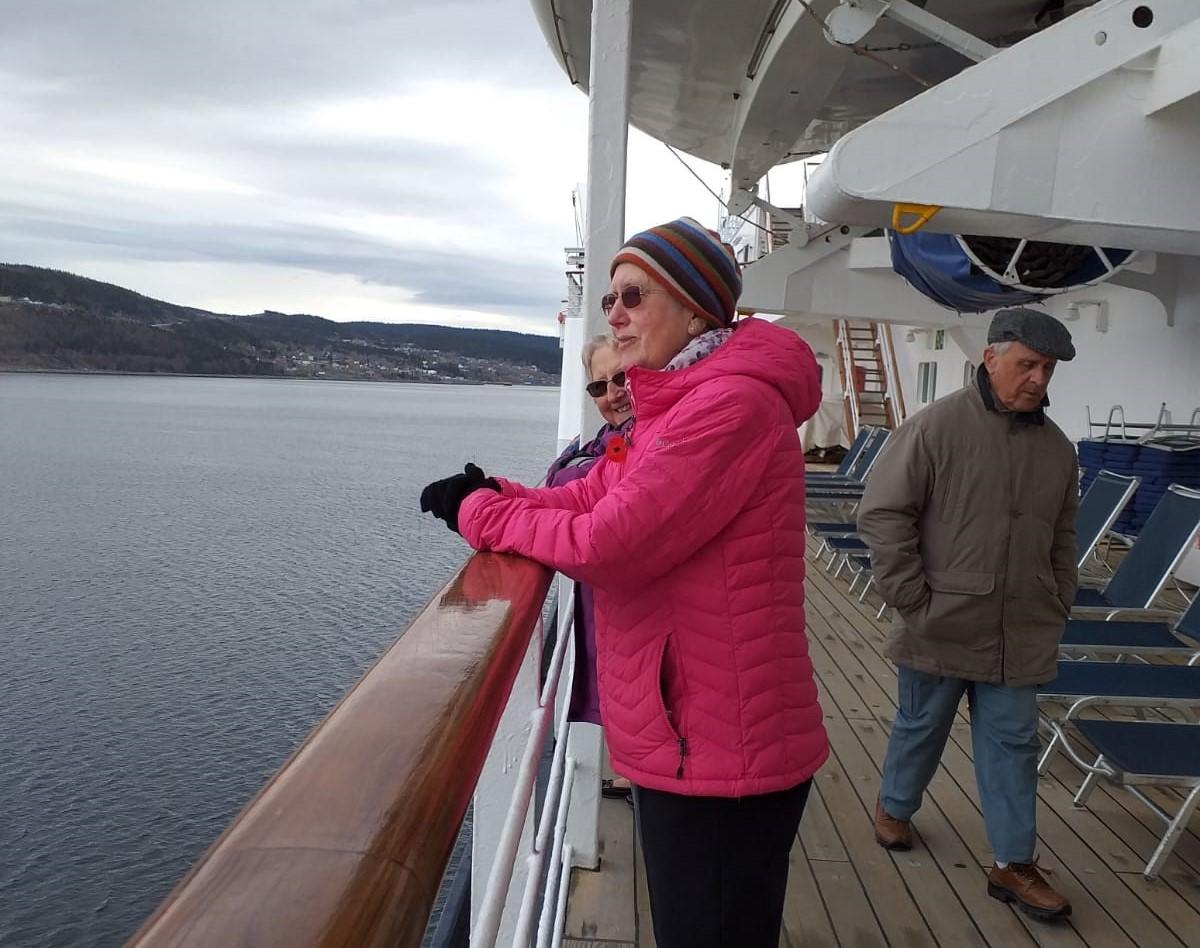Kathleen
'I'm not the same person I was before my diagnosis of Burkitt lymphoma.'

I have been in remission from Burkitt lymphoma, a type of high-grade non-Hodgkin lymphoma, for over 12 years.
What had started as backache and a lump in my armpit, saw me referred to my local hospital.
I had a series of meetings with consultants and many tests later was told I had lymphoma, but that further tests were needed to identify the exact type. On 4 November 2006, I was diagnosed with Burkitt lymphoma, stage 4.
Venturing into the unknown was frightening, especially when I was told I had a rare cancer that my medical team had not treated before. As for me, I had barely heard of the word ‘lymphoma’. Looking back, I walked into hospital relatively fit but left, several months later, bald, feeling lousy and incapable of walking unaided.
I had been told my lymphoma was aggressive and would be treated aggressively with full-time stays in hospital where I would be given R-CHOP chemotherapy and methotrexate. Unfortunately I had a reaction to the latter, endured C.difficil and developed sepsis, which was life-threatening and reduced my mobility significantly.
I had tubes, cannulas, Hickman® and PICC lines for chemotherapy. There were tubes to feed me and catheters to remove urine. I was unable to get in and out of bed. I could not clean, wash and dress myself or feel my feet. I needed help for the most basic of tasks. I could no longer read, concentrate or sleep. Worst of all was the inability to enjoy food and the continuous nausea.
The most overwhelming feeling throughout the process was fatigue.
The most overwhelming feeling throughout the process was fatigue. Clinical staff warned me about this, but in all honesty, I don’t think they understand how debilitating this can be. I remember my sister and her son visiting me in hospital and not having the strength to reach out and put on my glasses. Without being able to see them, I was unable to communicate with them effectively, and that memory still haunts me.
Despite enduring the treatment, there were a number of things that have stayed with me:
• the incredible support offered by my late husband, family and friends
• the wonderful care and consideration I received from my medical team
• the honesty of my consultant
• living on banana milk-shakes, ice-pops and the picnics provided by my late husband
• the joy of having a shower for the first time for many days
• certain TV programmes that still remind me of my time in hospital. I can’t watch ‘Strictly Come Dancing’ without thinking about chemotherapy.
The real highlight was on 23 April 2007. I had braced myself for the worst, so it was actually a shock when I was told I was in remission. I still celebrate this date.
While my treatment had finished, my recovery had only just begun.
While my treatment had finished, my recovery had only just begun. The question I had to face was how to move on from feeling ‘institutionalised’ to returning to the ‘real world’ and adapting to a ‘new normality’.
To help with this, I received support from specialist nurses and had regular check-ups with my consultant over 5 years.
I became a member of a Lymphoma Action Support Group and am a Buddy. I am also a member of the Reader Panel that ensures the organisation’s information is easily understood. This has kept a link which has helped me stay informed of latest developments in treatments for lymphoma. At a local level, I have been a cancer buddy for over a decade at the hospital that saved my life.
Cancer changed me in a variety of ways: hair loss, scarring, weakened muscles and lack of feeling in toes and fingers. I had got into habits that still continue, like wetting my head under the shower as I did when I had no hair. These are minor concerns in comparison with the emotional and mental problems I have faced. There is the frustration of not being able to do things I could do before. Some of this I have put down to ‘chemo brain’, which causes me problems with concentration and with finding the correct word. Surprisingly though, I have become more creative and enjoy many crafts that I would not have tackled in the past.
Because my immune system was compromised when I was being treated, I have become paranoid about infection control; I hesitate to shake hands with people and nothing is designed to infuriate me more than someone sneezing close by, even after all these years.
If I have aches, pains or unexplained lumps, I do not hesitate to see my doctor. No, I am not turning into a hypochondriac, but I am only too well aware that cancer generally needs to be identified quickly and I do not propose to take any chances.
Travel was important to me before cancer so I was delighted to discover there were a number of companies who would provide travel insurance, albeit after some detailed questioning about my pre-existing medical condition and at an increased price.
Cancer impacts upon whole families, friends and communities.
One important message I have is the need to care for carers. Family and friends have to master their own fears. Cancer impacts upon whole families, friends and communities. Relationships can change. Those that matter continue as before; others may change beyond recognition.
Having undergone treatment for cancer, I have changed as a person and, I am told, made me more sensitive to others experiencing difficulties. It has also reaffirmed my belief in the importance of gratitude and living life to the full.
